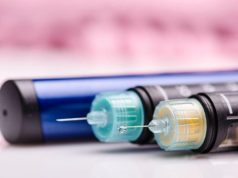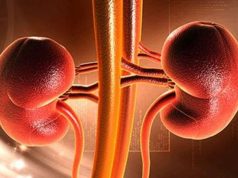In addition, high-fat, low-carb breakfast tied to less hunger later in the day
TUESDAY, April 16, 2019 (HealthDay News) — A very low-carbohydrate, high-fat breakfast may be a practical and easy way for patients with type 2 diabetes to lower their overall exposure to postprandial hyperglycemia and improve glycemic variability, according to a study published online April 9 in The American Journal of Clinical Nutrition.
Courtney R. Chang, from the University of British Columbia in Vancouver, Canada, and colleagues assessed the impact of breakfast diet on daily postprandial hyperglycemia using continuous glucose monitoring. Adults with physician-diagnosed type 2 diabetes (23 participants; mean age, 59 years) completed two 24-hour feeding interventions: a very low-carbohydrate, high-fat breakfast (LCBF) and a breakfast with a dietary guidelines-recommended nutrient profile (GLBF). The same lunch and dinner were provided to both groups.
The researchers found that the LCBF significantly reduced postprandial hyperglycemia after breakfast and did not adversely affect glycemia after lunch or dinner. Compared with the GLBF, overall postprandial hyperglycemia and glycemic variability were reduced with the LCBF (24-hour incremental area under the glucose curve, −173 ± 361 mmol/L; mean amplitude of glycemic excursions, −0.4 ± 0.8 mmol/L). Compared with the GLBF, premeal hunger was lower before dinner with the LCBF.
“The results of our study suggest potential benefits of altering macronutrient distribution throughout the day so that carbohydrates are restricted at breakfast with a balanced lunch and dinner rather than consuming an even distribution and moderate amount of carbohydrates throughout the day,” a coauthor said in a statement.
Abstract/Full Text (subscription or payment may be required)
Copyright © 2019 HealthDay. All rights reserved.








